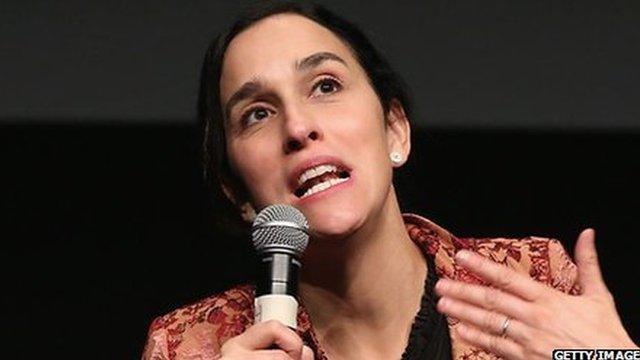Is it still a man's world behind the camera?
- Published
- comments
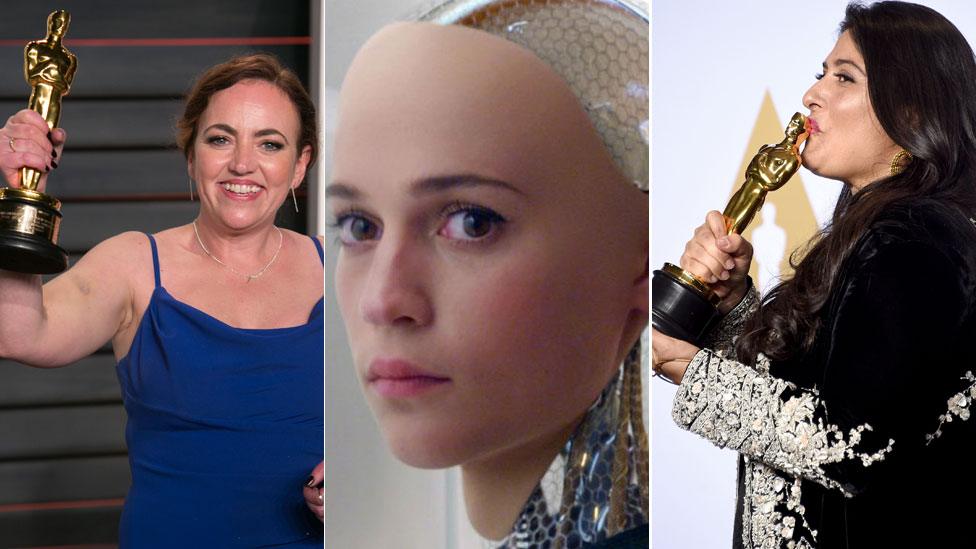
Sara Bennett (l) won her Oscar for her work on Ex Machina (centre) and Sharmeen Obaid Chinoy won for her documentary films
Oscars season is all about the stars: who said what, which gowns rocked the red carpet, and of course, who won.
But for women behind the camera, it takes a lot more to get noticed.
Female nominations for technical work are rare - blink and you can miss them. From the outside, it looks like a man's world - but is that how it feels?
Three women - two of them 2016 Oscar winners - tell us what it's really like.
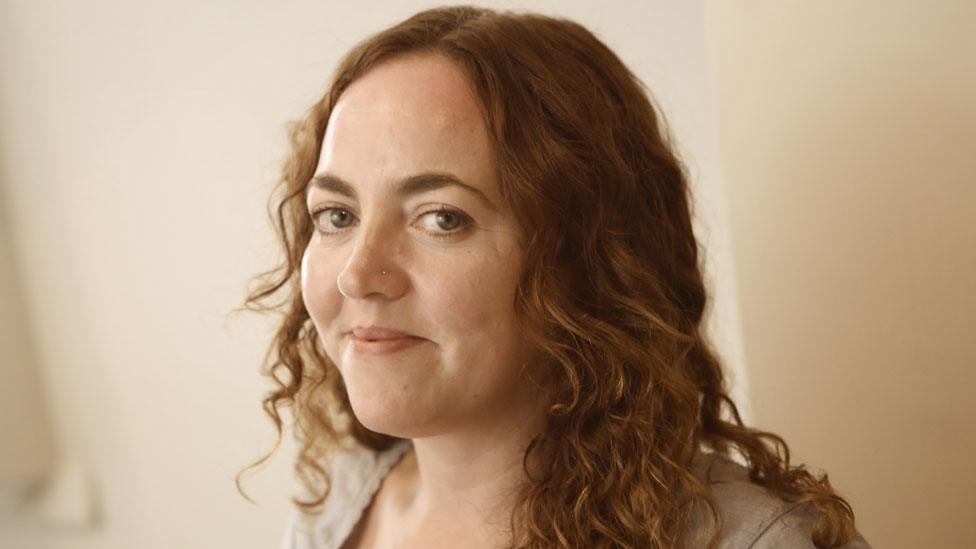
Sara Bennett was the first female VFX supervisor to win an Academy Award
"I loved film growing up - I watched a lot of horror and I loved prosthetics, so my natural thought was to get into that," says Sara Bennett, external, who won an Oscar for her work on 2015 sci-fi drama Ex Machina.
Lack of female Oscar winners
The film brought to life the female robot Ava, played by Alicia Vikander, whose body had humanoid features but with a transparent skull, limbs and torso.
As the first female VFX supervisor to win an Oscar, external, Sara broke new ground at 2016's ceremony.
It was only the third time in 89 years that a woman had been nominated for visual effects.
The last winner? Suzanne Benson for Aliens - back in 1987.
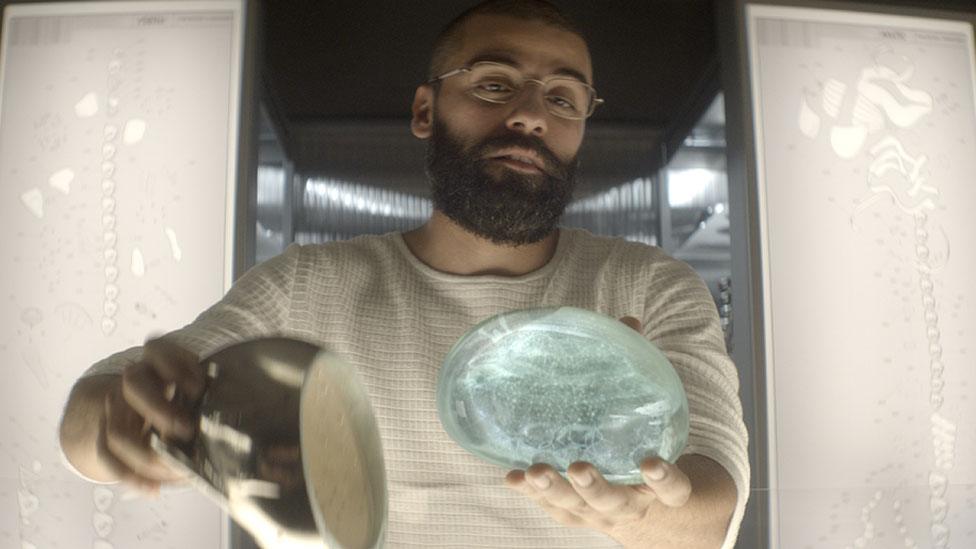
Technology genius Nathan Bateman, played by Oscar Isaac, holds a robot "brain" created by Sara Bennett in Ex Machina
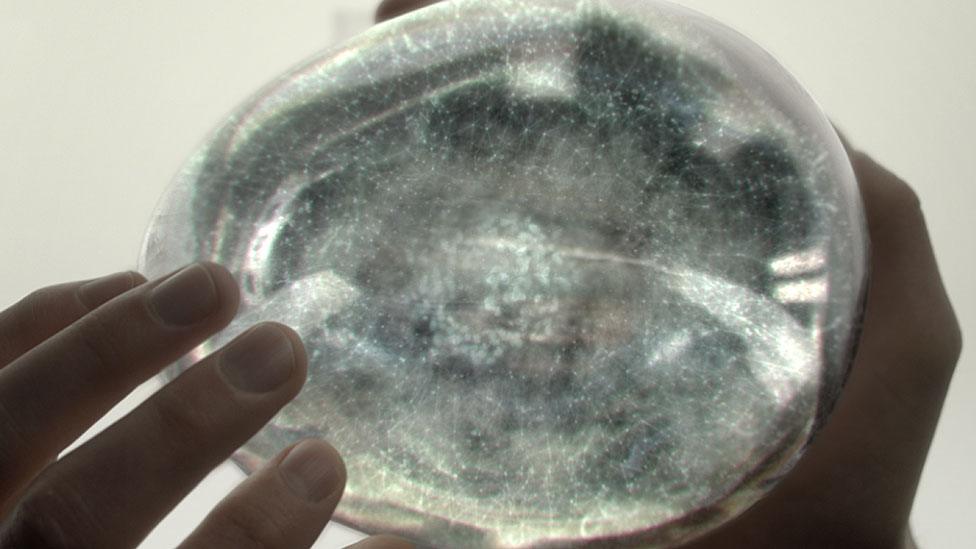
Sara said she had to create an "organic" look for the "brain"
Despite being such rarity, Sara says she's never felt outnumbered.
"Until last year's Oscar nomination, I'd never really thought about it being male-dominated," she says.
"The hard time for me was learning the craft and moving up, as opposed to dealing with men in my industry."
She grins.
"Being a woman probably went in my favour, to be honest."
From prosthetics to VFX
Sara, whose back catalogue includes Sherlock, The Martian and the first four Harry Potter films, says she loves the variety her work gives her.
Her passion for her work is infectious, and she says it was "amazing" winning the Oscar - she couldn't quite believe it when her name was read out.
But she also mixes it up by managing a team, mentoring young women and leading children's workshops.
Having trained in prosthetics and make-up, she became a runner during the 1990s, working as a general assistant on film sets before switching to VFX.
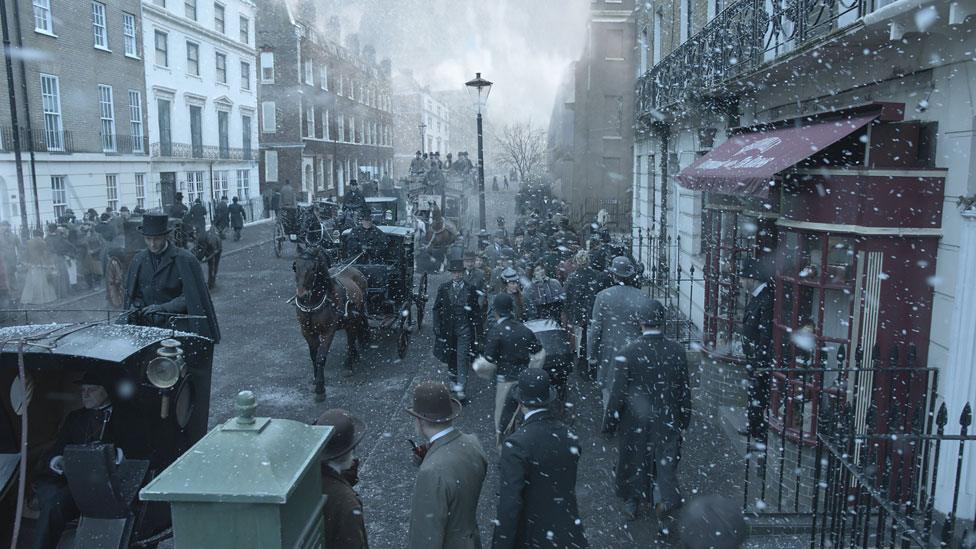
Sara's credits also include Sherlock episode The Abominable Bride
As a compositor, she learned how to combine several visual elements into a believable on-screen image, gaining her first credit in 1998 for Babe, Pig in the City.
Although aspiring VFX specialists can now learn through YouTube tutorials, software and courses, Sara's adamant that the best experience is found in the workplace.
"Until you're working flat out and your eyes are bleeding at four in the morning, that horrible feeling - that's when you really learn about the job," she laughs, talking about the pressures of working to tight deadlines.
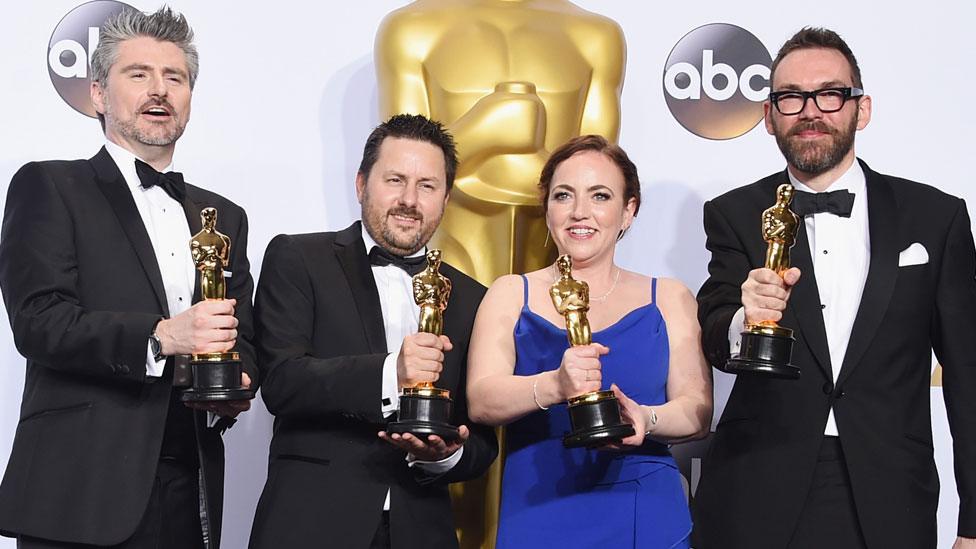
Sara won her Oscar alongside fellow VFX artists Mark Williams Ardington, Paul Norris and Andrew Whitehurst
Three years ago she set up London and Cardiff-based visual effects company Milk with four male colleagues, after their section in another VFX studio, The Mill, was closed down.
Sara now sees more women moving through the ranks, and says with delight: "When I was younger it was about 80/20 men to women in VFX, but now it's closer to 60/40."

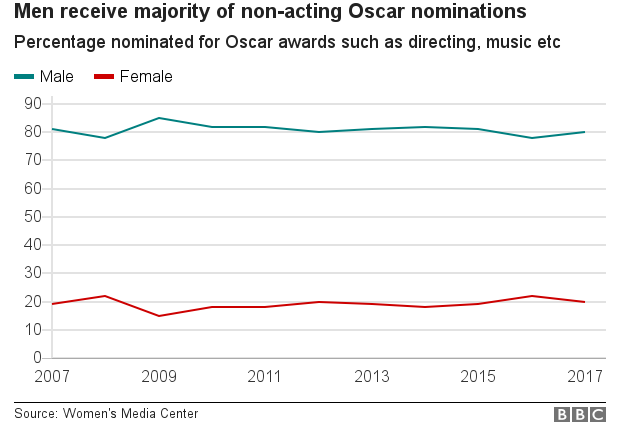
But even if more women want creative positions in the film industry, they're not at the top table just yet.
Research, external from the Center for the Study of Women in Television and Film says women made up just 17% of "behind-the-scenes employment" on the top 100, 250 and 500 films of 2016.
All-male nominations list
The study, The Celluloid Ceiling, external, states this is a drop of two percentage points on 2015, putting the figures on a par with 1998.
These statistics, combined with this year's all-male VFX Oscar nominations, make those rare female wins look even more stark.
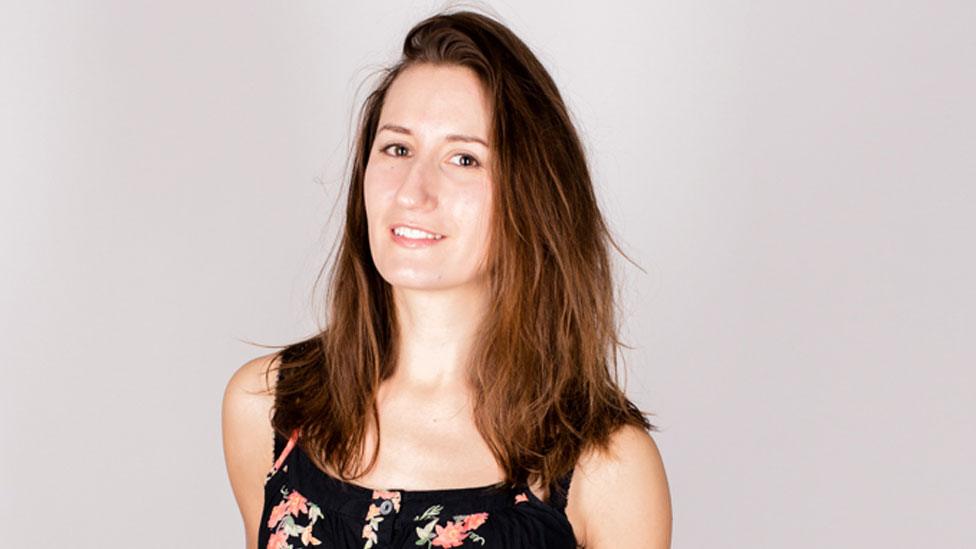
Fie Tholander says it is "cool to have a job where you do magic" with VFX
So when's this going to change?
Sara says it will take a while. "There's so many women doing VFX. Maybe they're not doing the big A-List films, but they're out there doing it all."
'Magic and fairy tales'
Fie Tholander, 31, has been inspired by Sara, working for her as a VFX compositor at Milk.
"I've always been drawn to magic, to fairy tale stories," she says, citing David Bowie fantasy drama Labyrinth (1986) as an inspiration.
She's single-mindedly pursued her career since she was 15 and is now creating aliens for the upcoming Doctor Who series.
She also worked on the brains in jars with eyeballs which featured in last year's Christmas special.

She worked on last year's Doctor Who Christmas episode
As a Danish high school student, she already knew she wanted to work in VFX, studying art at Animation Workshop, external before heading for London, with an internship at The Mill, external.
It was there that she met Sara, who became her mentor.
Women 'hold back' at work
"Having Sara as a role model makes women realise they can actually do it," she says.
"VFX is portrayed as a technical thing, which isn't always the case. I'm not a technical person, I'm more creative."
Fie thinks women need to be more assertive: "I think women in general hold back, we're afraid to ask, and men are a bit more bold with their careers."
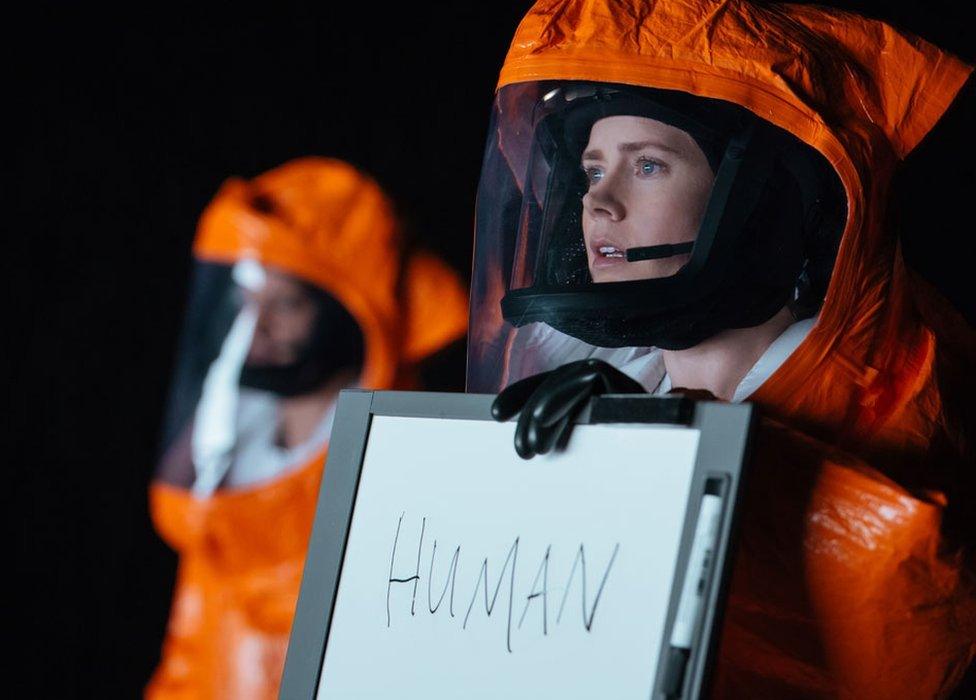
Amy Adams is the lead in the Oscar-nominated film Arrival
Has she ever hit a glass, even a celluloid, ceiling? Nope.
"Sexism isn't something I've come across. If I want something I have to ask for it - no one will give it to me."
But Fie does think the industry's progressing, with more women applying to work in her profession.
Strong female role models
She's also convinced that the film world is changing.
"With all the movies coming out, we're getting female role models who aren't princesses, which is great."
Recent films such as Arrival have seen Amy Adams star as an expert linguist communicating with aliens, while Star Wars movie Rogue One has Felicity Jones as its lead.
But it's not just VFX and sci-fi where women are breaking through.
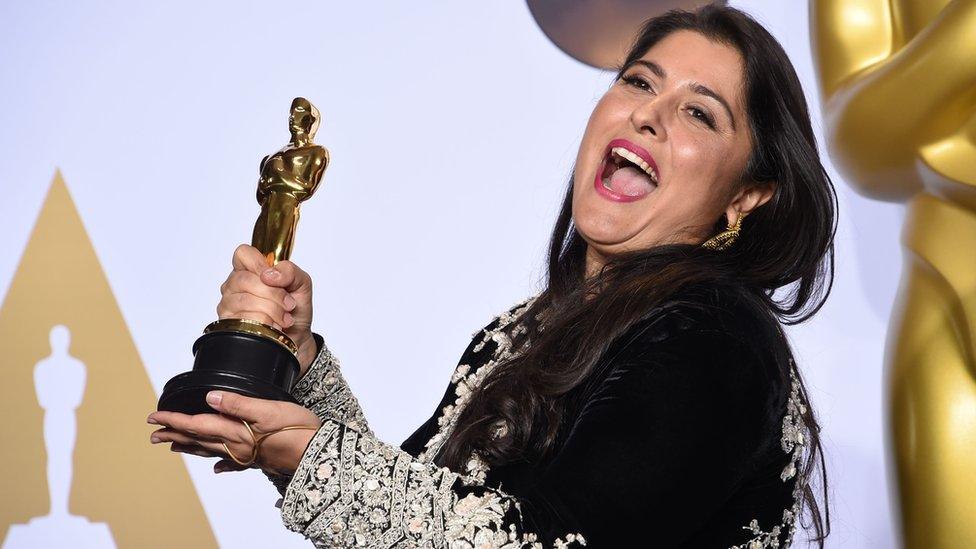
Sharmeen Obaid-Chinoy started out as a print journalist before switching to documentaries
Sharmeen Obaid-Chinoy, 37, made history last year as Pakistan's only double Oscar winner.
She won her second best documentary Oscar for A Girl in the River - The Price of Forgiveness, about honour killings in Pakistan.
Oscar-winning Sharmeen Obaid Chinoy on why being a female film-maker is an asset
Her first, in 2012, was for Saving Face, about a plastic surgeon treating those scarred by acid attacks.
Starting out as a print journalist in Pakistan, Sharmeen decided aged 21 to switch to documentaries, so she could tell her stories visually.
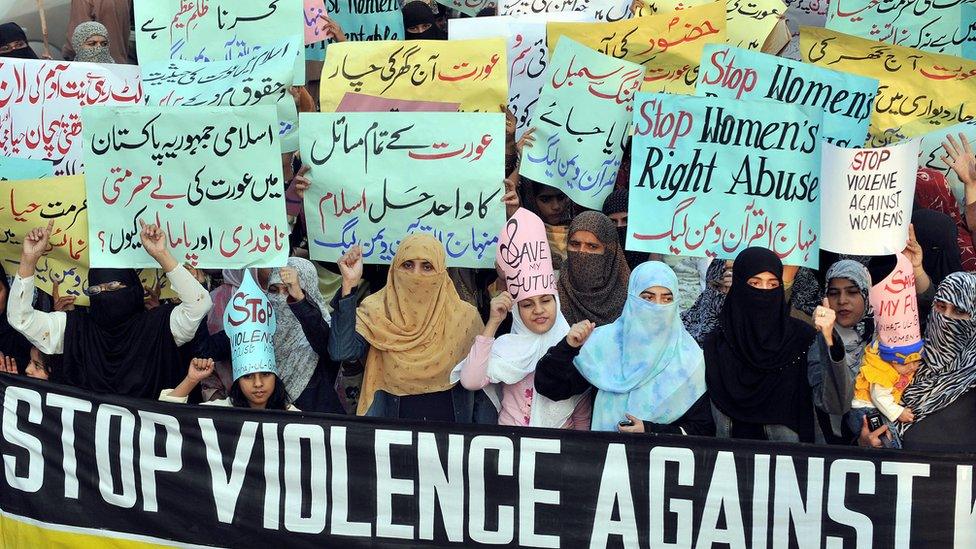
There are hundreds of so-called "honour killings" in Pakistan each year
She pitched her first film proposal to about 80 global organisations.
"I was pretty much turned down by everyone," she says. "But I've always believed that if a door doesn't open for you, it's because you haven't knocked hard enough."
Undeterred, she asked the New York Times, who'd just set up a TV unit.
Oscar win 'amplifies your voice'
They agreed to fund her first film, about Afghan refugee children on the streets of Pakistan.
Her career went upwards from there - she's also won two Emmys (in 2010 and 2013) and the Hilal-e-Imtiaz (Crescent of Distinction), Pakistan's second-highest civilian award.
For Sharmeen, her Oscar wins made a huge difference.
'Film-making like having a baby'
"It amplifies your voice and the voices of all of those people you are making a film about.
"After A Girl in the River, there was legislation about honour killing installed in Parliament in Pakistan. The win at the Oscars gave it the final push it needed to get it passed."
She deliberately multi-tasks by producing and directing because "it allows me the freedom to tell the type of stories I want to tell".
"I've always said that making a film is like having a baby. You have a long period of time where something is inside of you, and when you send it out into the world, you want the world to appreciate it."
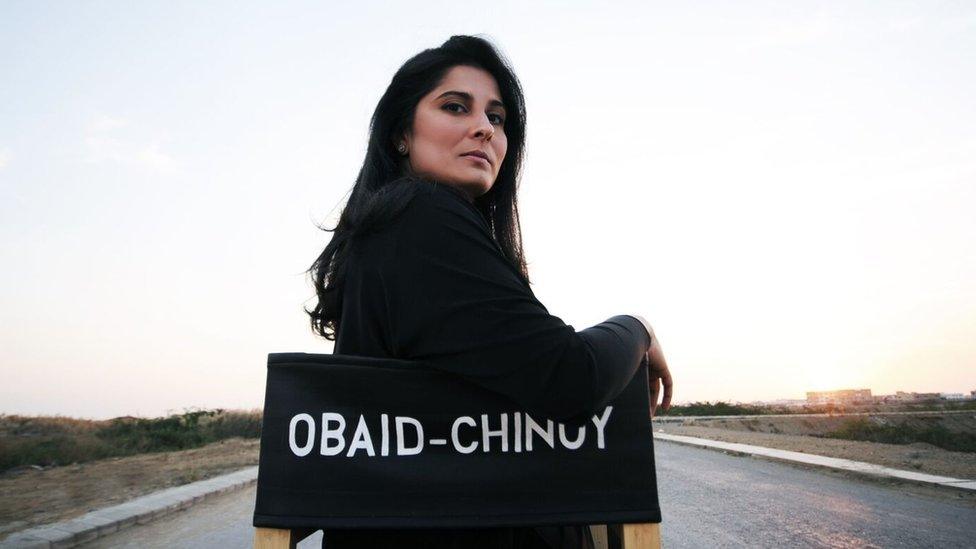
She has also won two Emmys
Well aware of the high numbers of men working in the film industry, she says she's at an advantage in her field.
"Whereas Hollywood will tell you fewer women are getting the opportunities to be directors or play key roles in film, in documentary work, women in greater numbers are coming up behind the camera, winning Academy Awards."
'I'm less of a threat'
And for her, being a female filmmaker is an "asset".
"I've been able to get into places where a man would seldom be able to get into," she says.
"If I was a man perhaps I wouldn't be standing here today. I'm looked upon as less of a threat because I'm a woman."
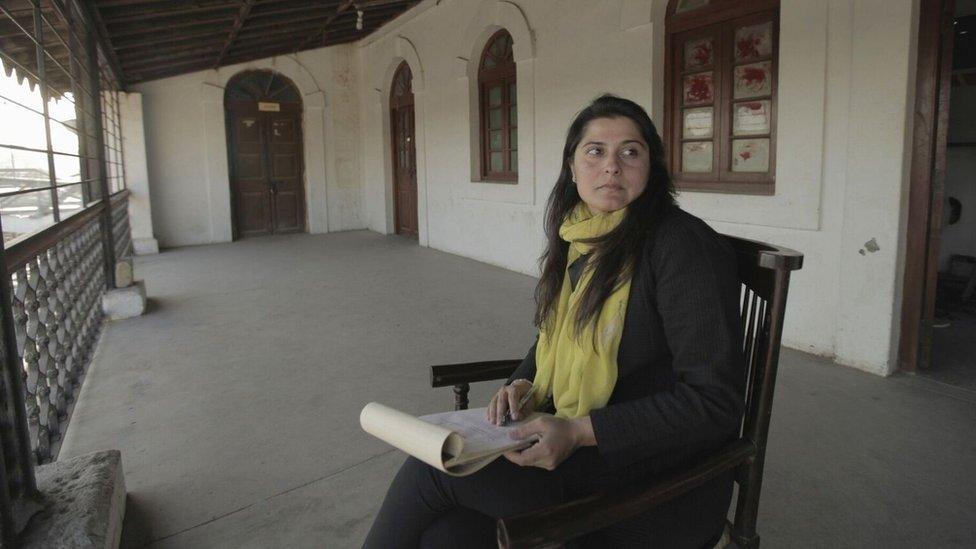
Sharmeen says it is an "asset" being a female filmmaker
Sharmeen is keen to see more young women working in film, and tells them: "You always need to believe in yourself. You need to go out and kick open those doors and you should never take no for an answer. Anything is possible.
"Chase your dreams and you never know, you may find yourself up on stage telling the stories you want to tell - and getting an accolade for it."
Sara's words of advice are all about being resilient.
She adds: "If you get knocked back just get back up again - keep trying, make sure you enjoy it, put a big smile on your face - don't give up."

Follow us on Facebook, external, on Twitter @BBCNewsEnts, external, or on Instagram at bbcnewsents, external. If you have a story suggestion email entertainment.news@bbc.co.uk, external.
- Published29 February 2016

- Published15 February 2016
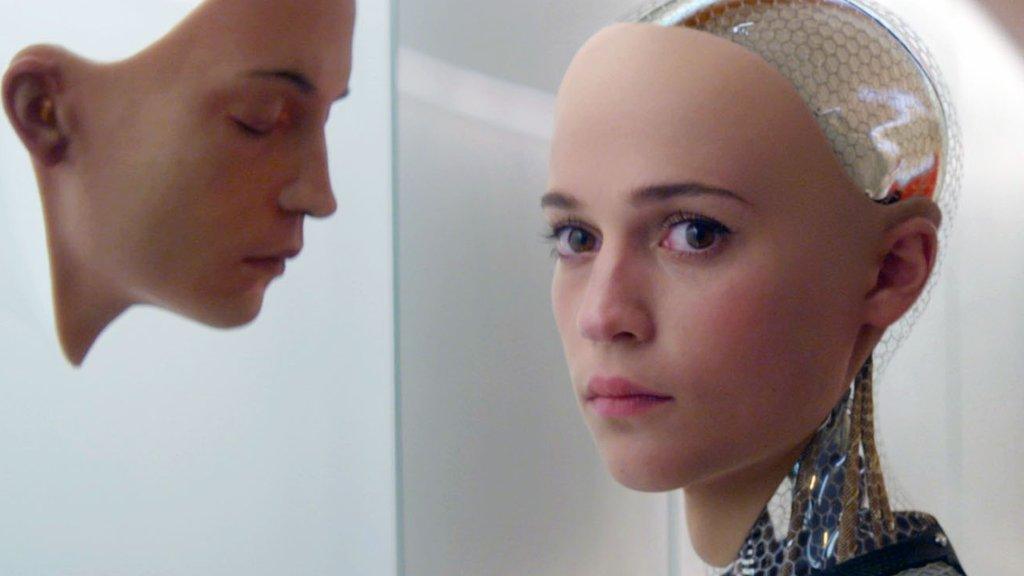
- Published24 January 2015
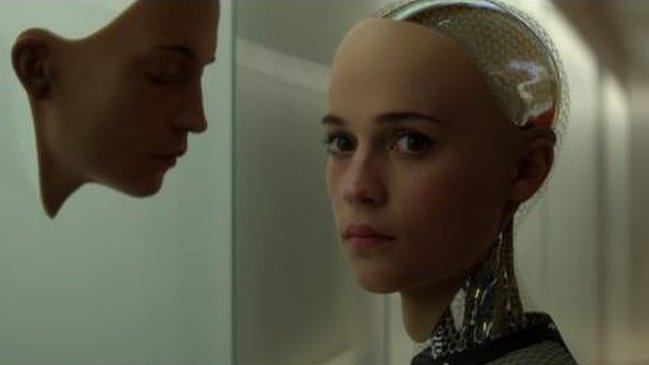
- Published5 May 2016
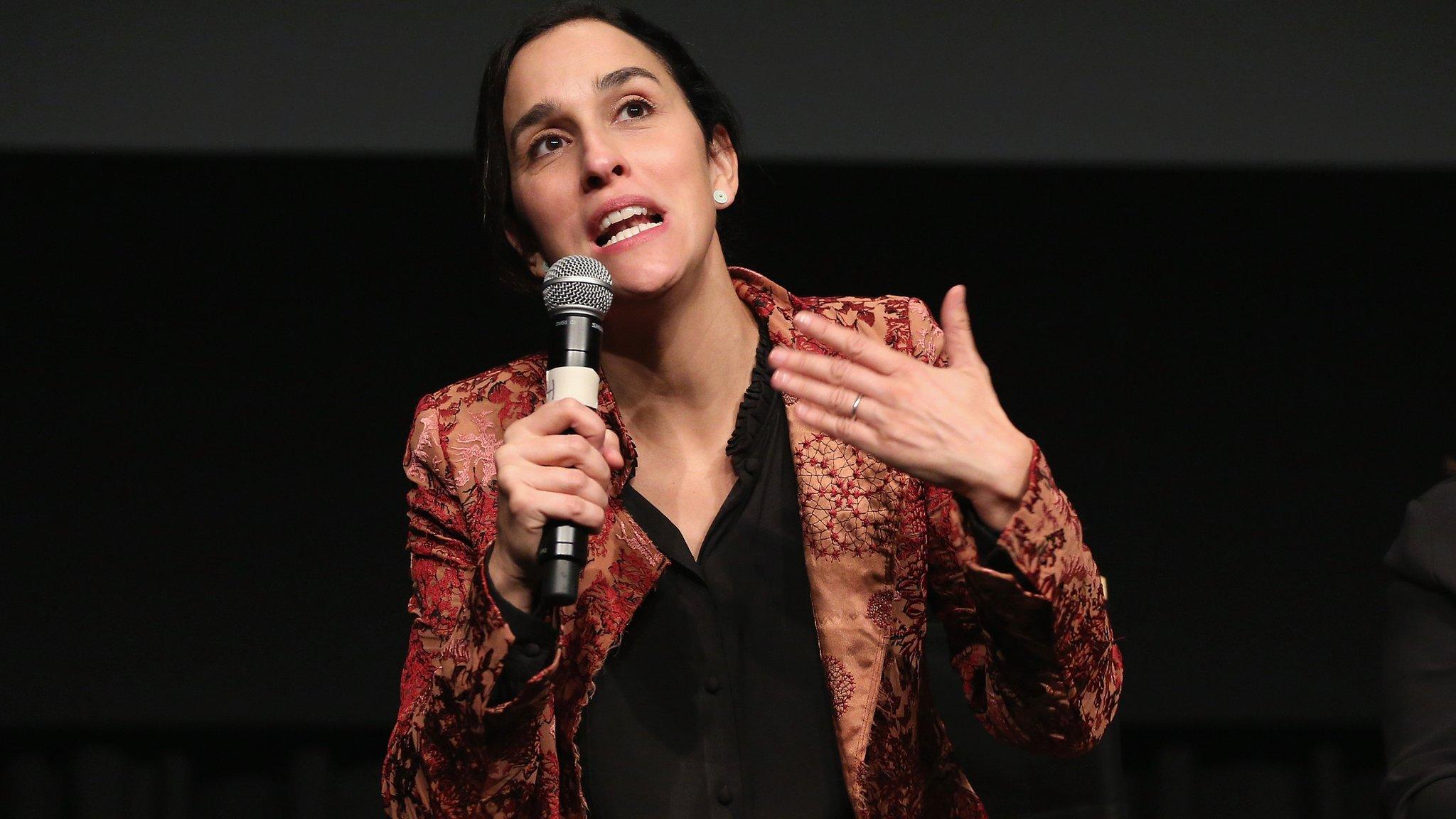
- Published18 March 2016
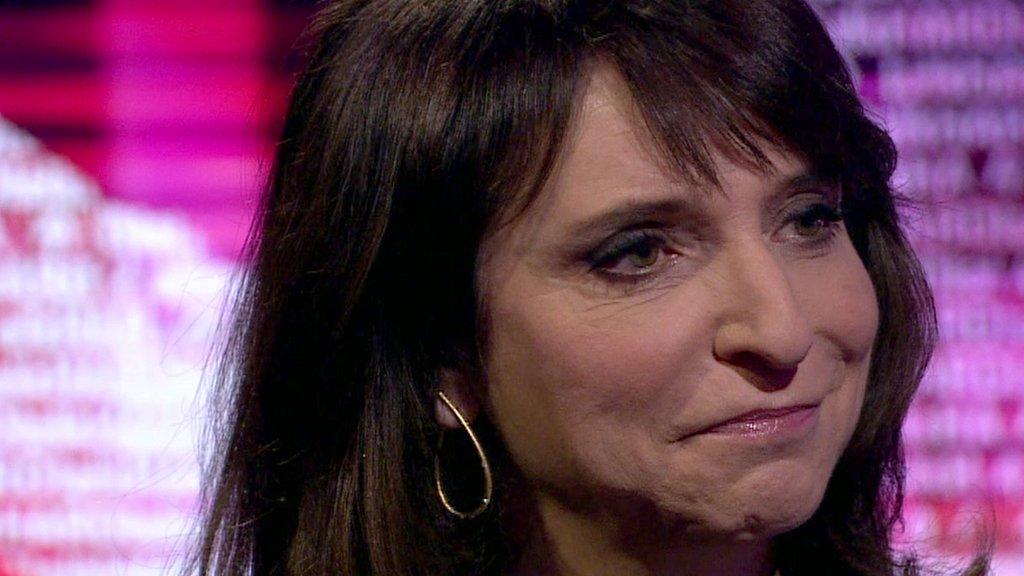
- Published5 May 2016
